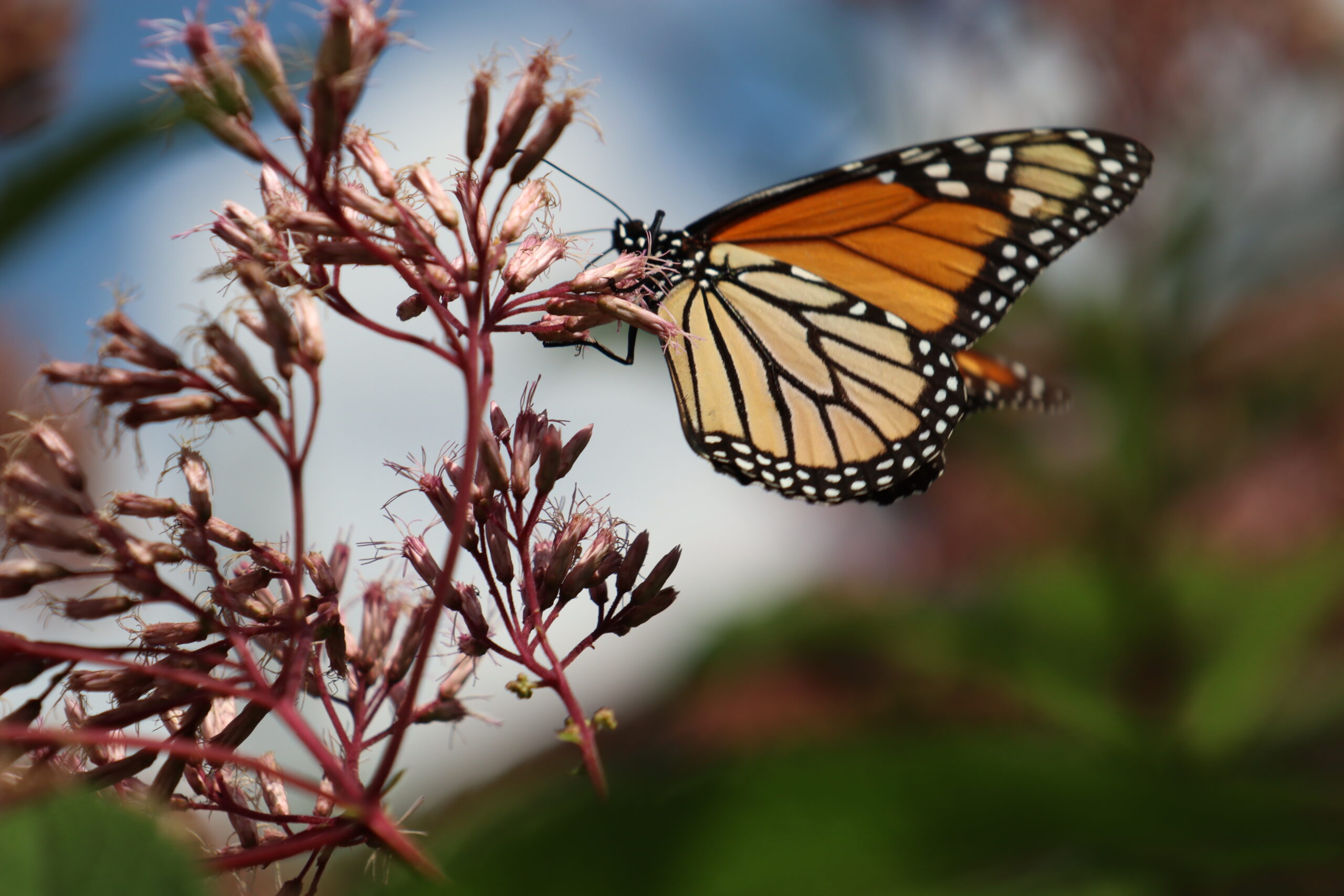Author: Mary Petres
As another amazing year in the gardens draws to a close, I count my blessings to be a part of such a wonderful endeavor. Whether you seek out nature to exercise, meditate, marvel at her beauty, or simply relax, The Low Line offers a pleasant retreat from the hustle and bustle of urban life. Whether you use this space daily or only visit occasionally, a new experience awaits. It may be a new bird you have never seen, a new plant added to the garden, or simply the way the sunlight captures the colors of a leaf.
“Every gardener knows that under the cloak of winter lies a miracle.” — Barbara Winkler
The most visible accomplishments of 2023 are the renovations in Great Shiplock Park. The rain garden and adjacent pollinator garden thrived, with a near 100% plant retention rate from our planting last year. Additionally, the renovation of both median beds is underway. The golden rain trees on either end of the median were replaced with the native Nyssa Sylvatica (Black Gum, Tupelo). Surrounding the trees you will find Goldenrod (Solidago), Catmint (Nepeta x fassenii), garden phlox (Phlox paniculata), Nodding Onion (Allium cernuum), and asters. Since this garden is still young and establishing we had supplemental watering provided by the Groundwork RVA crew throughout the summer. However, all of the plants in these gardens are drought tolerant once established, and we hope they will continue to thrive on their own as they mature. Thanks to the efforts of the Virginia Daffodil Society, we anticipate a beautiful spring display of heirloom daffodils in the median at Great Shiplock Park. In 2024, we hope to continue to fill in with additional perennials, and bulbs.
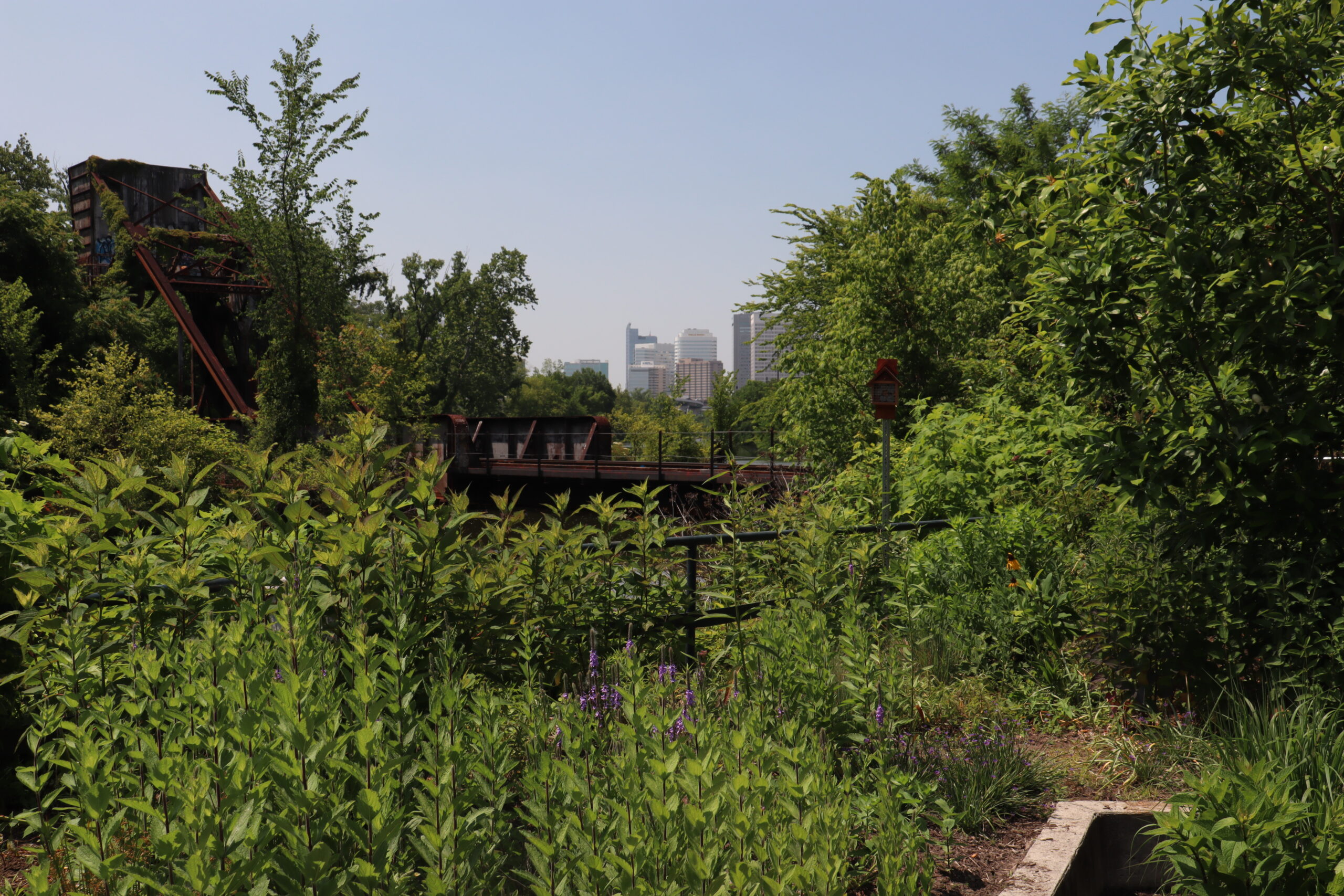
Great Shiplock Park
This summer we also supported pollinator research, though we are still waiting on official results on species observed, we did see a tremendous amount of activity on the Rattlesnake master (Eryngium yuccifolium), Clustered Mountain Mint (Pycnanthemum muticum), and bee balm (Monarda fitulosa). Throughout the gardens we observed a range of genus including at least three different species of bumble bees, several species in the genus Megachile which include the leaf cutter bees, a range of wasps from spring through fall, and members of Halictus, or the sweat bees.
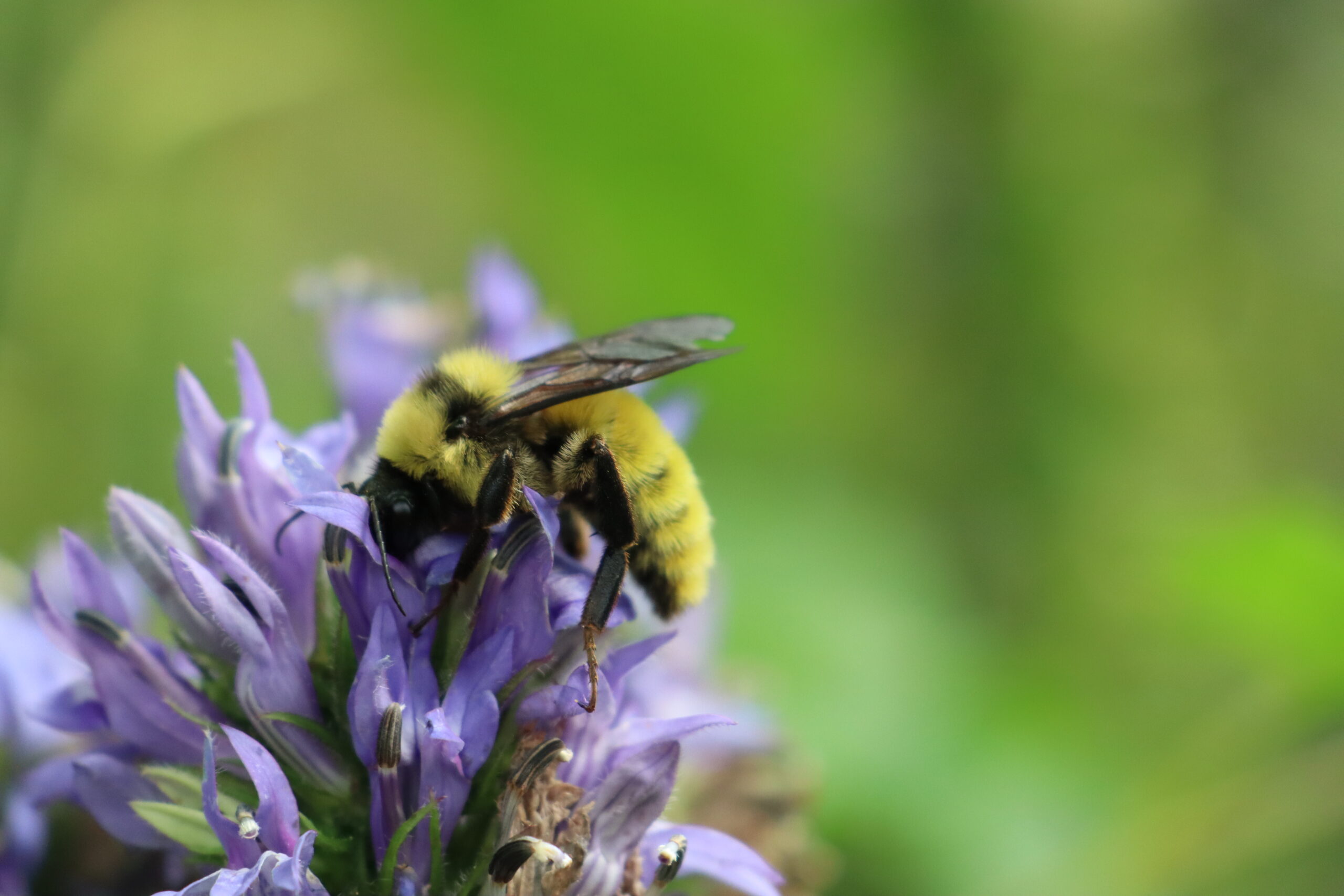
In the Low Line Gardens, we divided, transplanted, and shared many of the existing perennials with other garden enthusiasts. Keep an eye on our social media next season for news of more giveaways! We love being able to populate the gardens from our existing inventory of plants, and we will continue this practice as plant colonies thrive and need to be divided.
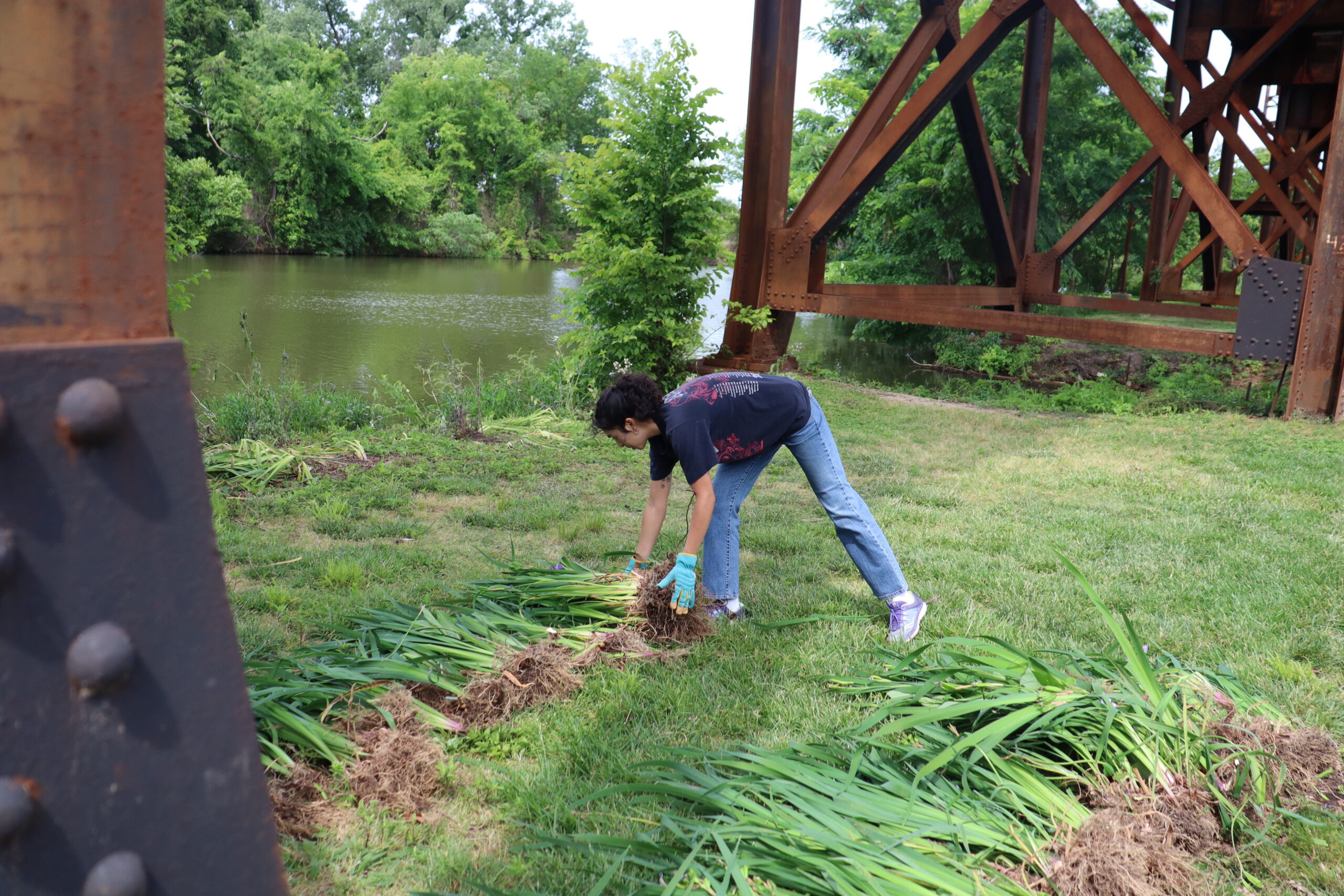
Iris virginiana, freshly divided to be shared with other gardeners
Three of the perennials in the Low Line gardens are particularly happy – the Iris virginiana, Packera aurea, and the Rudbeckia fulgida. Many volunteer hours were spent dividing and transplanting these plants. If you garden, you know how rewarding it is when you can begin dividing and sharing plants from the garden. Unlike Great Shiplock Park, the Low Line is irrigated. These three plants have been known to create full colonies in gardens without irrigation, but they are particularly prolific along the Low Line where they have space to spread and are consistently watered.
While most of the original tree plantings from 2015 have thrived, the Amelanchiers were the one exception. Being a member of the Rosaceae family the tree is susceptible to cedar apple rust. Every year the rust disfigures the leaves and fruit. Additionally the trees seem to resent the summer heat and humidity. Six of the twelve existing Amelanchier trees were replaced with native white fringe tree (Chionanthus virginiana). So far, the new trees are growing well and we plan to replace the other six Amelanchiers in the coming months, depending on availability and if the weather allows. At the same time we will rework the perennials in the gardens surrounding the trees.
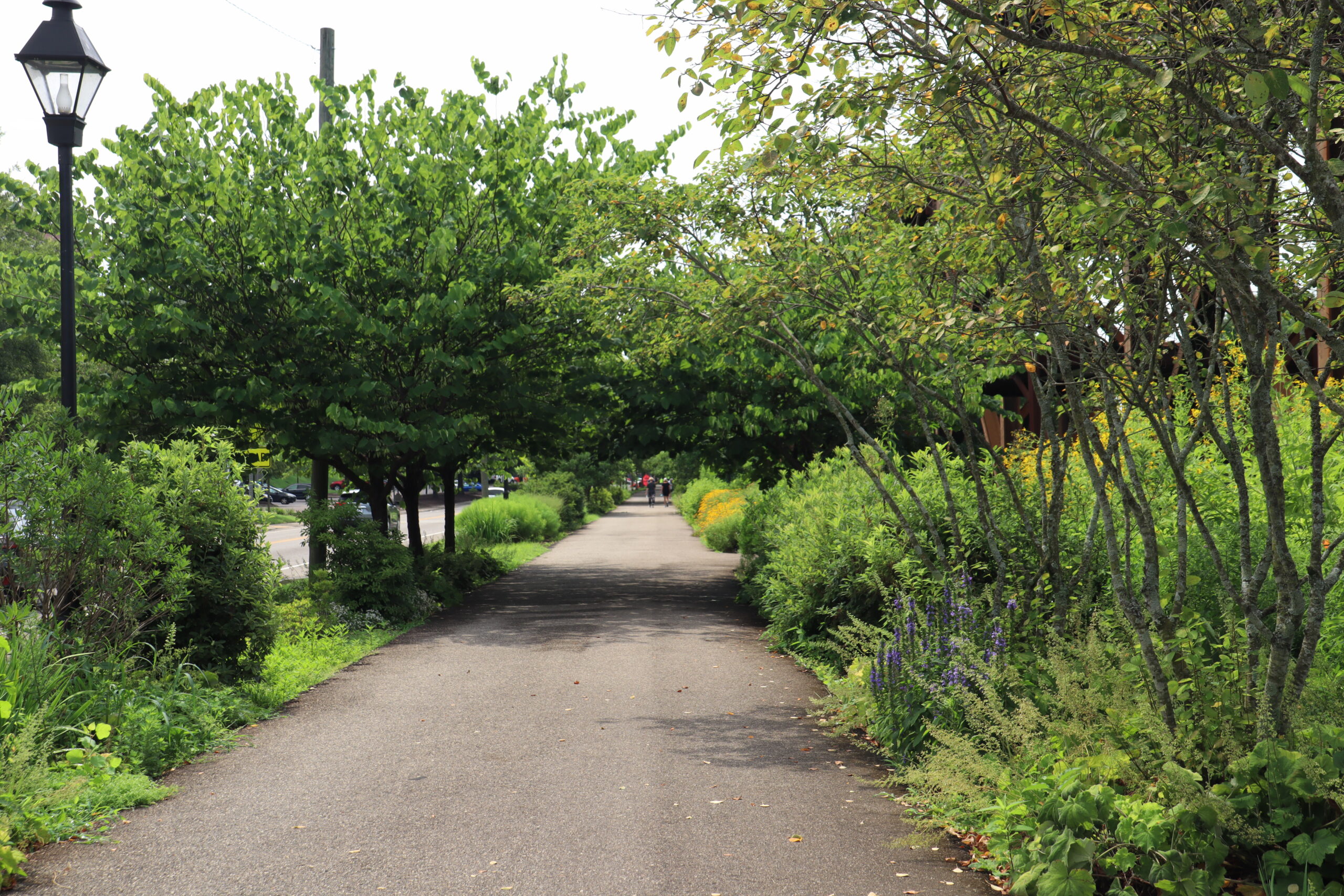
Amelanchier trees, front right
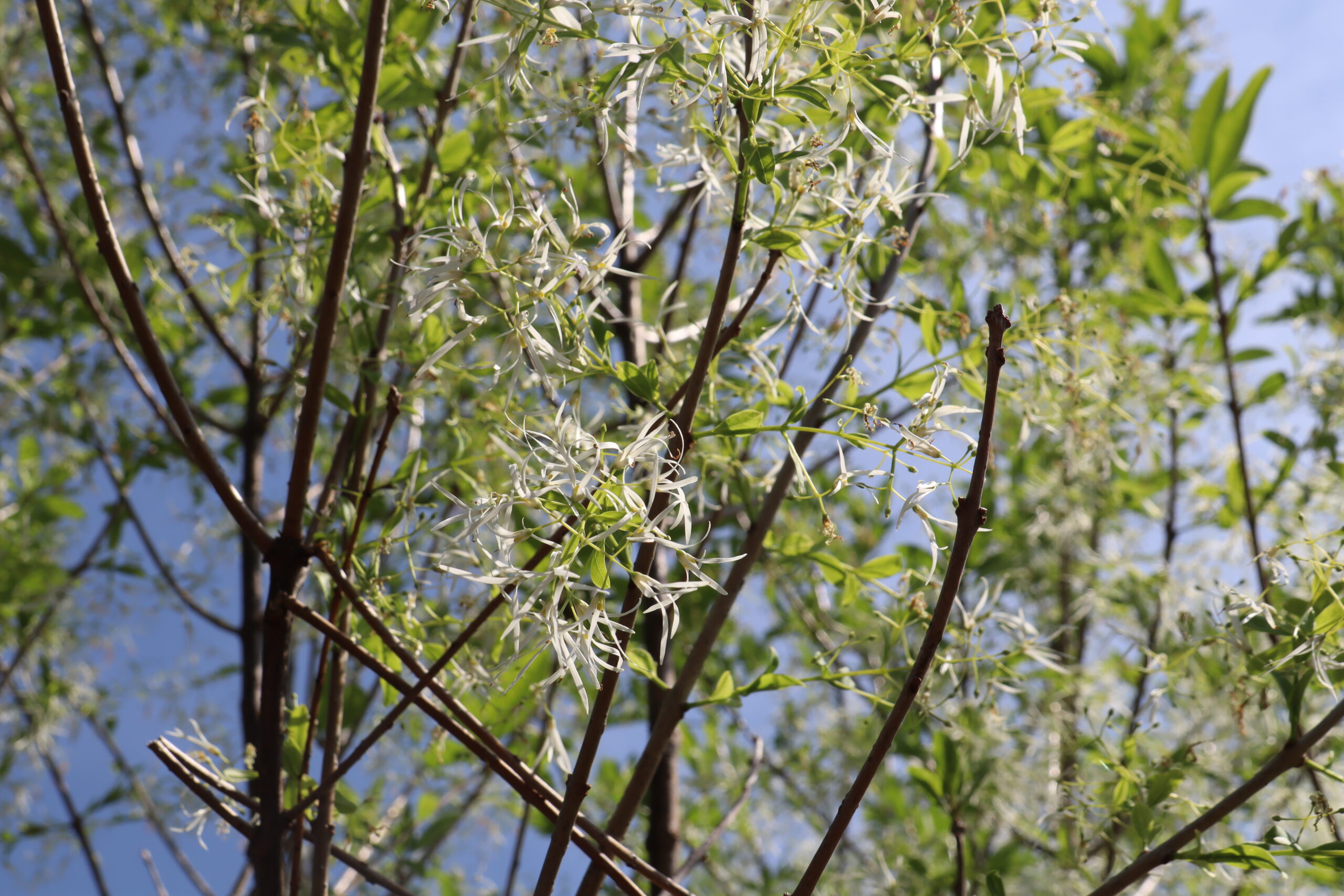
Chionanthus virginiana
We had the good fortune of having an intern, Katy Riley, with us for most of the season who did an amazing job. During her time with us, she developed a weed I.D. guide specific to the Capital Trees’ gardens which we will use to train volunteers and track our progress in the ongoing battle to reduce the weed seed bank. Part of our weed management strategy is to remove the weed or at least the flower before any seeds are produced. Though we are making incredible gains with our weed removal, we still have beds where annual weeds are fairly prolific and will need continued attention in 2024.
We experienced a resurgence of weeds in some areas where the soil was disturbed during our dividing/transplanting efforts. When the soil is disturbed, seeds are brought to the surface, exposing them to light which encourages germination. While we refrain from using bark mulch in the gardens, next season we will likely use selective placement where there has been soil disturbance. Long term, we hope to have enough plant coverage that most weeds are shaded out. Until then, we prioritize the use of shredded leaves as mulch. Our partners at H&A Landscaping mulch the leaves on site and spread them in the gardens. The mulched leaves help to enrich the soil, retain moisture, and protect the plants from winter’s fluctuating temperatures.
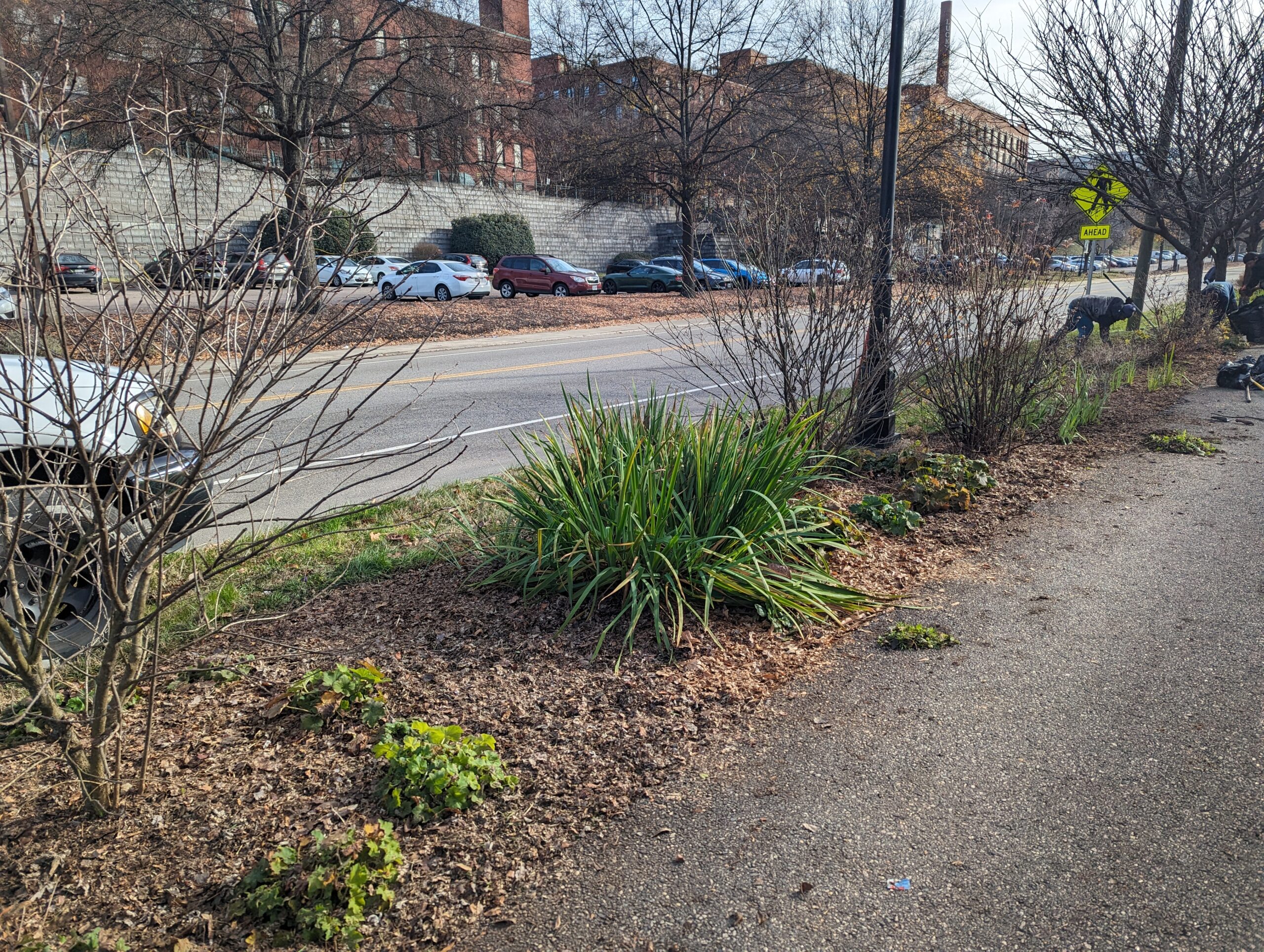
The Low Line Green, located at the entrance to the Capital Trail in downtown Richmond, has offered some challenges. At three years old, we are seeing some areas flourish, while others struggle. One victory for 2023 was finding several plants that are thriving in the rain garden proper — Penstemon digitalis and carex stricta. Unfortunately, the berm between the rain garden and the flood wall still proves challenging. We have tried several different plantings with little success, as the soil in this area is compacted and lacks organic matter. Though it is irrigated during the growing season, most of the area does not receive enough natural rainfall because of the overpasses. Hopefully we find the winning combination in 2024!
Our last major project for 2023 took place in Canoe Run Park located at the intersection of Riverside Drive and 22nd street. We were fortunate to partner with Co-Star, Keep Virginia Beautiful and City of Richmond’s Parks, Recreation, and Community Facilities on a project to reforest the park. In November, 50 trees were planted along the fitness trail. If everything continues to go well, in 3-5 years the trail will be 90% shaded.
“In seed time learn, in harvest teach, in winter enjoy.” — William Blake
Lastly, please come enjoy the winter gardens, they have a special ambience this time of year. You’ll catch glimpses of birds flitting among the plants collecting seeds. The quiet rustle of the wind in the foliage and dried grasses can quiet the mind. The gardens remind us that winter is a time to rest, reset, and prepare for the rebirth of Spring.

